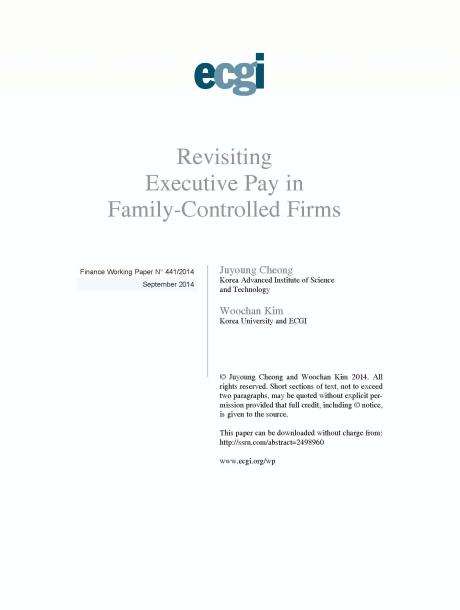
Revisiting Executive Pay in Family-Controlled Firms:
Family Premium in Large Business Groups
Abstract
According to the prior literature, family executives of family-controlled firms receive lower compensation than non-family executives. One of the key driving forces behind this is the existence of family members who are not involved in management, but own significant fraction of shares and closely monitor and/or discipline those involved in management. In this paper, we show that this assumption falls apart if family-controlled firm is part of a large business group, where most of the family members take managerial positions but own little equity stakes in member firms. Using 2014 compensation data of 564 executives in 368 family-controlled firms in Korea, we find three key results consistent with our prediction First, family executives are paid more than non-family executives (by 27% more, on average) and this family premium is pronounced in larger business group firms even after controlling for potential selection bias problems. Second, pay to family-executives falls with the influence of outside family members (their aggregate ownership in the firm minus the ownership held by the family executive in the same firm). Third, family premium in large business group firms rises with group size, but falls with family?s cash flow rights. It also rises for group chairs, but falls with the number of board seats the family-executive holds within the group.









